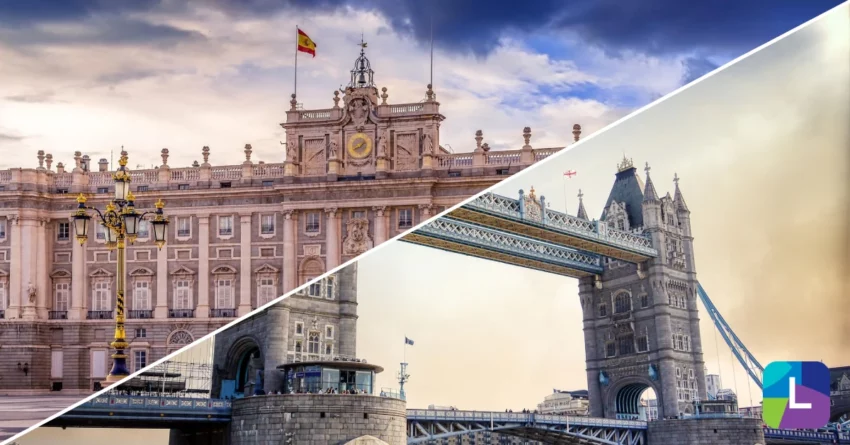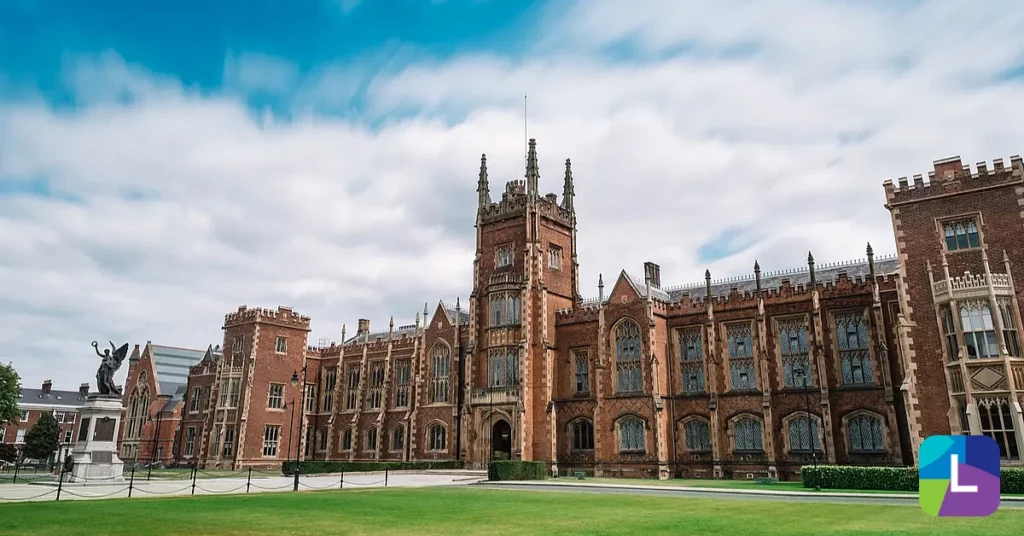UK v Europe Master’s Degree: What Are The Big Differences
The UK has always stood out as the most popular postgraduate study destination for international students in Europe, but one question many students ask is “What’s the difference?” You might be surprised to learn that there are some really big differences between a master’s in Europe and one in the UK.
If you are considering studying abroad, it’s worth noting some of these points as the best course of action. But for many, these may not necessarily be the best option nor present great opportunities. As COVID-19 restrictions have come to an end in many countries, precautionary measures still remain.
Below we have highlighted the big differences between studying for a master’s degree in the UK compared to one in Europe.
Brexit
It’s been almost three years since the finalisation of Brexit and to enter the UK, you will need to familiarise yourself with the student visa rules. In short, students wanting to study in the UK or (or UK students in the EU) will need a visa or a residence permit. In some cases, you may even require additional documents and papers.
To study in the UK on a student visa, you need to meet the following requirements set out by the British government:
- Must be over the age of 16 (must require a signed consent by your parents if under the age of 18)
- Have been offered a place on a course by a licensed student sponsor (a licensed education institute).
- Can speak, read, write and understand English. Find more information about the English Language tests.
- Have enough money to support yourself and pay for your course. The amount will depend on the course, university, location and lifestyle
If you’re an Irish citizen from the Republic of Ireland, you’ll need to prove your Irish nationality and evidence that you can live in the UK, Ireland or surrounding Islands for at least 3 years prior to the course start date. You can find out more information here.
If you’re in the UK, you can apply for a student visa within 3 months before your course starts and a decision will be given within 8 weeks. If you are applying outside of the UK, you must apply within 6 months of your course starts and you will be given a reply within 3 weeks.
You will have to pay for a student visa. It costs £363 from outside the UK, or £490 to extend or switch to a student visa within the UK. If you are bringing other members of your family, you must pay for their visas too. As part of the student visa, you will also have to pay a healthcare surcharge as part of the application. You can find out more information here.
Universities
The UK is home to some of the world’s most prestigious and top universities. The university differences between the UK and Europe are few, with both systems being quite similar. Both are a part of the European Higher Education Area.
The biggest difference is the scale of education between both sections of Europe. Some EU countries have two different types of universities; research universities and Universities of Applied Sciences.
Most universities in the UK offer a full range of bachelor’s, master’s and PhD degrees. Although, the specific course and expertise may vary.
Courses
Postgraduate courses are often longer in Europe, where two-year master’s degrees are common. In the UK and a few others, a full-time master’s is almost always a one-year course.
Studying for a master’s in the UK usually involves an entire 12-month course with a dissertation taking place during the summer months (usually between July-September). The course date typically commences in September for a summer start or January for a winter start. In addition, you can also complete the course part-time which is typically 2x longer than a standard full-time degree.
Meanwhile, the courses on the continent differ compared to those in the UK. A standard degree lasts two years and the part-time version is usually double the length. In addition, the courses usually have a break in between their first and second year. Students are encouraged to do an internship role to practice their new skills in a professional work environment. If a course doesn’t have an internship driven-block, students are encouraged to complete their dissertation within this period.
The best option for you depends on whether you prefer a shorter and more intense course or a longer course with more time.
Fees and funding
One of the biggest decisions you’ll make about where you should study comes down to fees. Is it cheaper to study for a Master’s in the UK, or abroad?
It’s not easy to compare all the prices, but a general brief is studying abroad in other EU countries tends to be cheaper than those in the UK, with few not charging at all. Others may charge more or a similar rate to a UK university. A general rule of thumb when it comes to prices, the more prestigious the university, the higher the fees will be.
But when it comes down to funding, the UK and EU tend to be quite similar. Neither tends to offer postgraduate loans to international students, however, there are numerous scholarship schemes one can apply for. For the UK, you can view more information here, and for the EU here.
Language
It won’t surprise you that UK universities teach in English, but did you know other EU countries also offer English-language Master’s degrees? It’s worth checking out, but you may find that a second or third language is not always required. If there is a language requirement and you do not fit it, you will need to prove evidence of that country’s language proficiency.
In the UK, every international student has to prove English proficiency if they are not born in an Anglophone country (eg the USA, Australia, or New Zealand). This is because every course is taught in English and as a high-level qualification, one must prove their understanding is met as individual assistance by the university may not be possible. You can find more information if you require to undertake an English Language test.
Post-study visa
Normally, you will need to apply for a Student Visa to study for a Master’s abroad in the UK. But once you finish your studies, you can apply for a Graduate Visa. A graduate visa is obtained as long as you have successfully completed your course and your education provider has told the Home Office. It lasts for two years, or three if you have a PhD or other doctoral qualifications. You cannot extend the visa, but you can switch to a different visa, for example, a Skilled Worker visa. You may look at other types of visas here.
Post-study visas are also offered in many European countries, with many offering students to stay for a year or more. Bear in mind, that if you are an EU citizen, you don’t require a visa to move or reside in another EU nation. However, if you want to travel between the UK and the EU (and vice versa), you will require one.
Conclusion
So, is the UK a better place to study for a master’s degree than abroad? It depends.
The UK tends to offer shorter courses and it’s also home to some very prestigious universities, but other European countries offer courses with lower fees and more generous post-study arrangements. The best thing you can do is to compare the different options and see which factors are more important to help you achieve your dream career role.
Are you thinking about pursuing a master’s at a top UK university? Make your dream come true by seizing this opportunity to either take your career to the next level or tick off a personal interest. *Apply online and we’ll support you on your path to success.
Representative Example: Assumed borrowing of £30,825 over 120 months at 12.73% APR representative. Monthly cost of £509.26. Total amount repayable of £61,199.65. Interest rate of 11.62% p.a.(fixed) and total fees of £925.00. Available for loan amounts between £5,000 – £100,000.
(Representative Example date: October 2024)
*Credit is subject to status and loan approval is not guaranteed. Over 18’s only. Terms and conditions apply.




